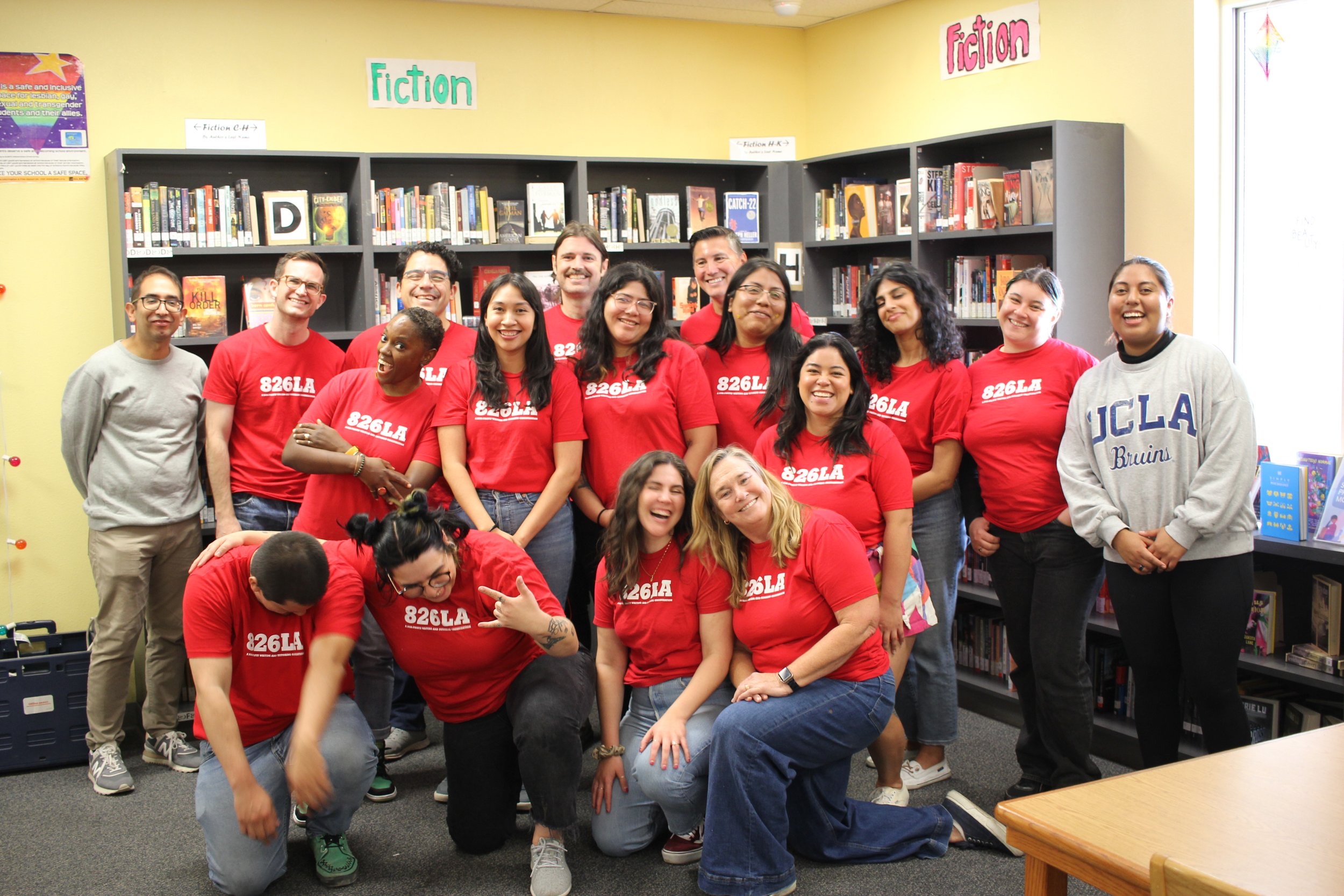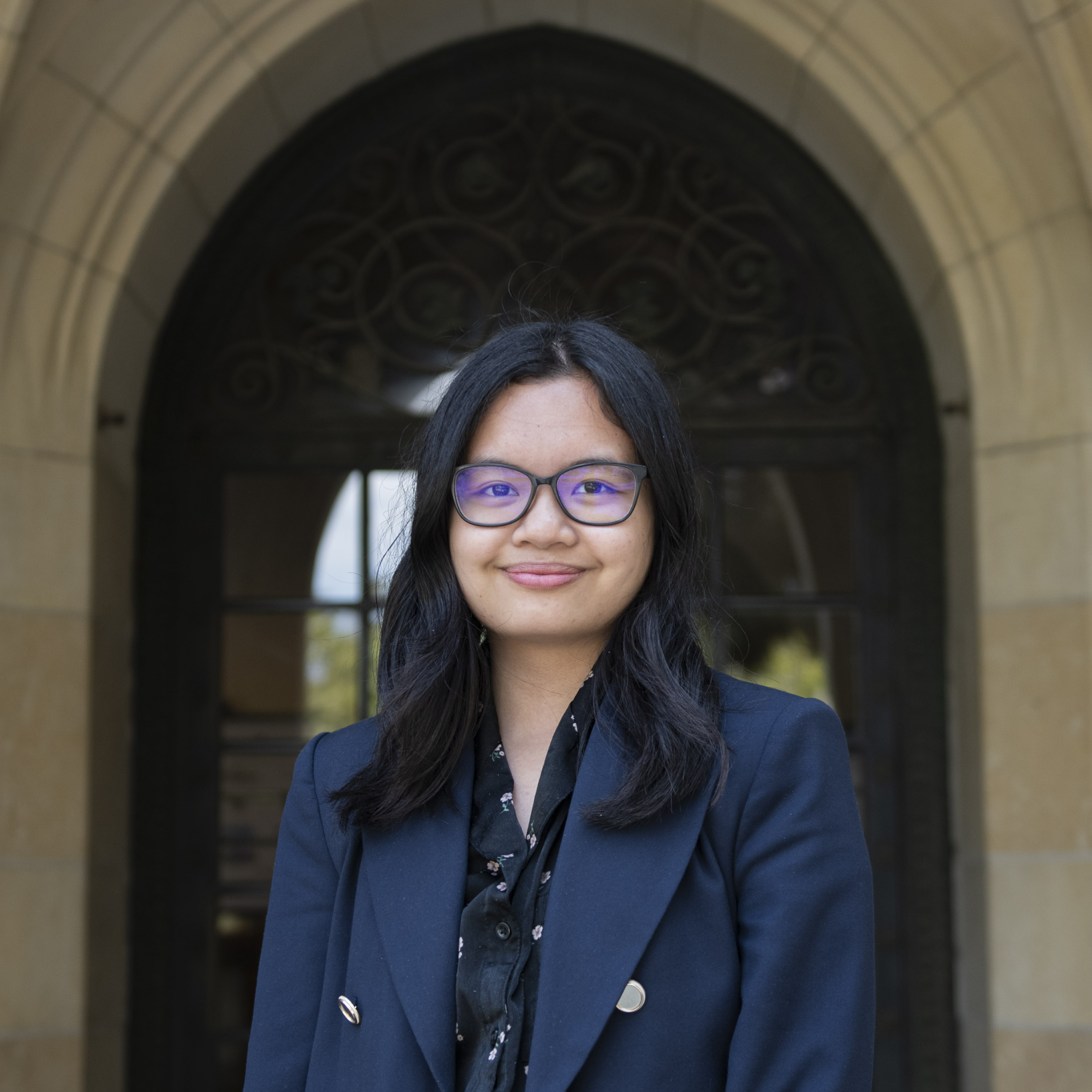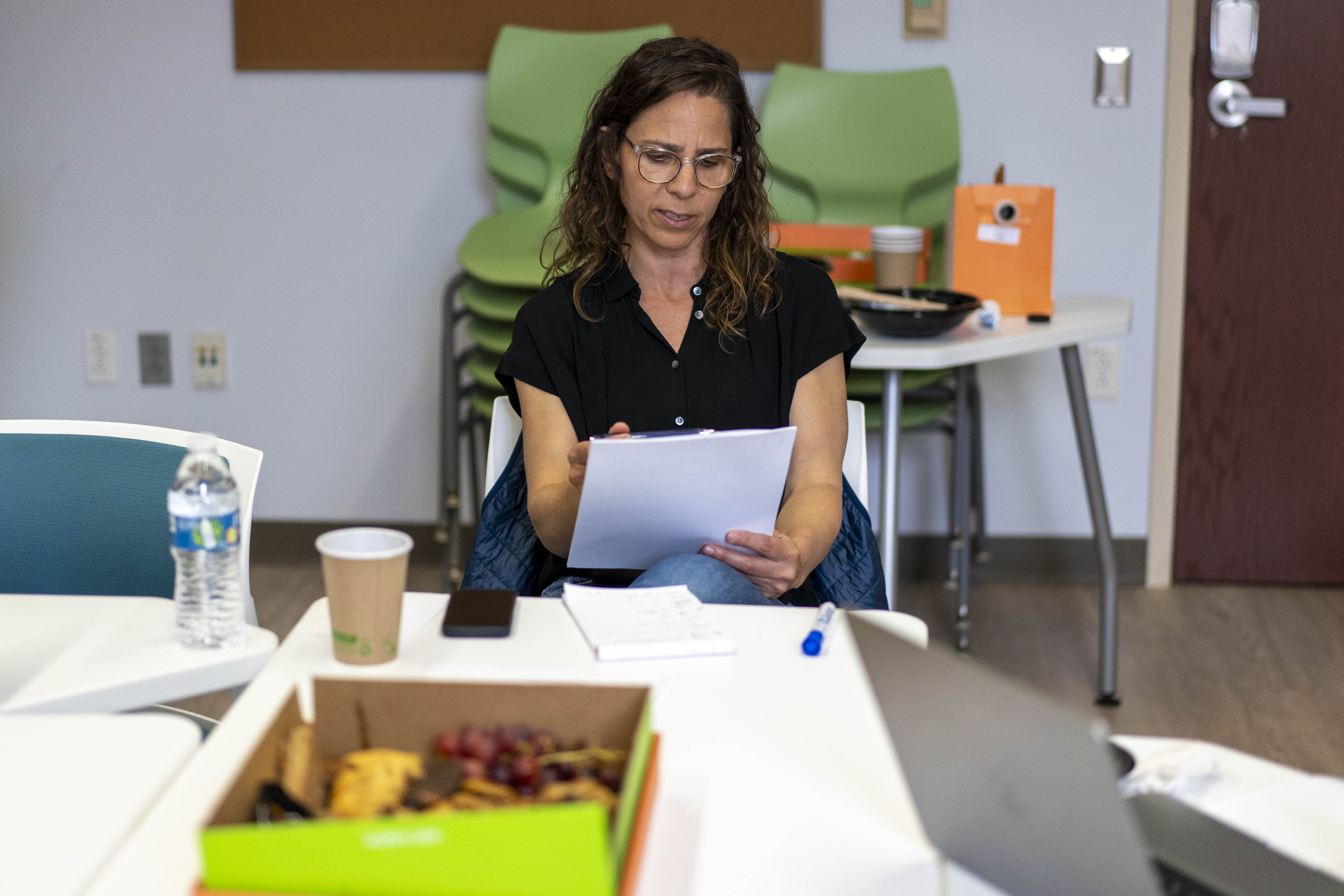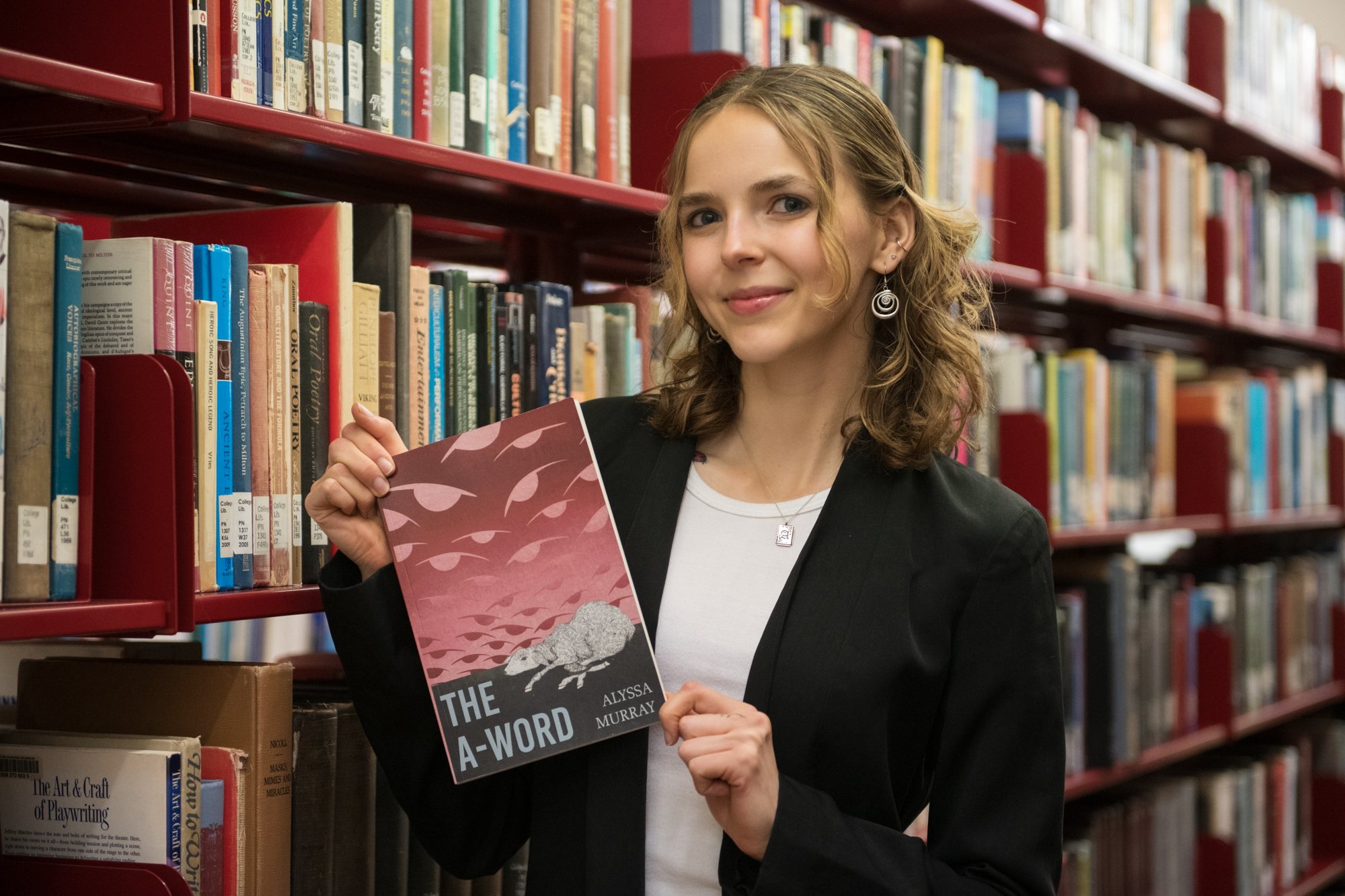826LA’s journaling workshop educates on mental health, empowers youth creativity

Pictured is the staff of 826LA in red shirts, posing for a picture. The organization hosted an event at the Hammer Museum on Sunday, where they taught youth how to journal for mental health. (Courtesy of 826LA)

By Amy L. Wong
May 5, 2025 9:22 p.m.
This post was updated May 6 at 9:14 p.m.
Children participated in a journaling workshop promoting mental health hosted at the Hammer Museum on Sunday.
At the event presented by 826LA, a nonprofit that aims to teach children ages six to 18 creative writing skills, students played a game to learn coping strategies, drew their dream gardens and wrote about their safe and happy places through guided prompts. The workshop was led by Ariana Ponce Olivares, an educator and senior civic engagement coordinator at 826LA. Ponce Olivares said she enjoyed how the workshop gave opportunities to students with different learning styles to engage through the various activities. Alan Cruz, a volunteer at the event, said he enjoyed witnessing the students’ creativity.
“It feels like I’m regaining something that I lost, which is my creativity,” Cruz said. “Because through the education system, especially in America, it feels like you lose your creativity as you grow up, but with these kids, I feel like I regain it.”
[Related: LA Times Festival of Books ends 2025 chapter with panels on identity, storytelling]
During the drawing portion of the workshop, Alan said the children’s creativity was evident. While he drew trees and bees, he said he saw children drawing bears following the bees to their beehives. Ashley Fakolujo, another volunteer, said she noticed the freedom students had to be creative during the writing section. She said in academic settings, students can feel pressured by the idea that their writing has to be formal. During events like the journaling workshop at Hammer, Fakolujo added that students can be empowered to explore their individuality and use writing as a way to express themselves.
“In the 826LA, we’re like, ‘No, if you want your sky to be orange and your grass to be purple, then let it be that,’” Fakolujo said. “Just write and allow yourself to express yourself and be unique. Be you in your own kind of setting.”
Since the participants have different personalities, Ponce Olivares said they also have different boundaries. As a stranger to them, Ponce Olivares added she does not have the expectation that the students automatically respect her since she is not their regular teacher or tutor. She said she learned how to navigate disrespect from students by using phrases such as, “We don’t use that language here” or “Maybe we can word it in a different way.”
“Knowing that every student has their own ownership and authority to themselves is something that I respect,” Ponce Olivares said. “It comes with their own individuality, and who wants to mess with someone’s individuality?”
In addition to being creative, the students at Sunday’s event were intelligent, Fakolujo added. Before a bingo game, the students asked logistical questions about how other students could potentially cheat by erasing what they wrote with their pencils, Fakolujo said. Due to the concerns the students raised, Fakolujo said she thought of bringing out the markers.
Furthermore, the students offered effective coping strategies to write on their bingo cards, Ponce Olivares said. While she worried that some of the students might have suggested less serious coping methods, such as playing a zombie apocalypse game, she said the students offered numerous constructive suggestions. Some of their ideas included counting to 10, talking to someone, going to the park and drawing.
[Related: Rosanna Warren transforms life into written word at Hammer Museum poetry event]
Throughout the bingo game, Ponce Olivares added that she saw students become more confident in themselves and participate more in the workshop. There were two students at the back of the room who were shy throughout the workshop but became more vocal during the game, Ponce Olivares said. The different formats throughout the workshop led to students presenting their creative ideas in the ones they resonated with most.
Time in school, extracurriculars and tutors provide important opportunities for students to develop their social skills and personalities, Fakolujo added. In small group settings such as the one offered at the workshop, Fakolujo said a tutor can focus on each child in a way that might be difficult in a larger classroom setting. A challenge with teaching young children is that it can be difficult for the student to become comfortable, but she said it can be fun to see the students become more confident in themselves. Fakolujo added that being a tutor helps her be a part of the students’ development.
“Teachers play a really big, important part in the lives of children since they do spend a lot of time with them, and I think tutors and extracurricular activities play an equally important part,” Fakolujo said. “Being in a position like this is like an opportunity to essentially help shape the future and make sure that kids are still knowledgeable of the things that they need to know in the space where it’s easy to forget the history.”





